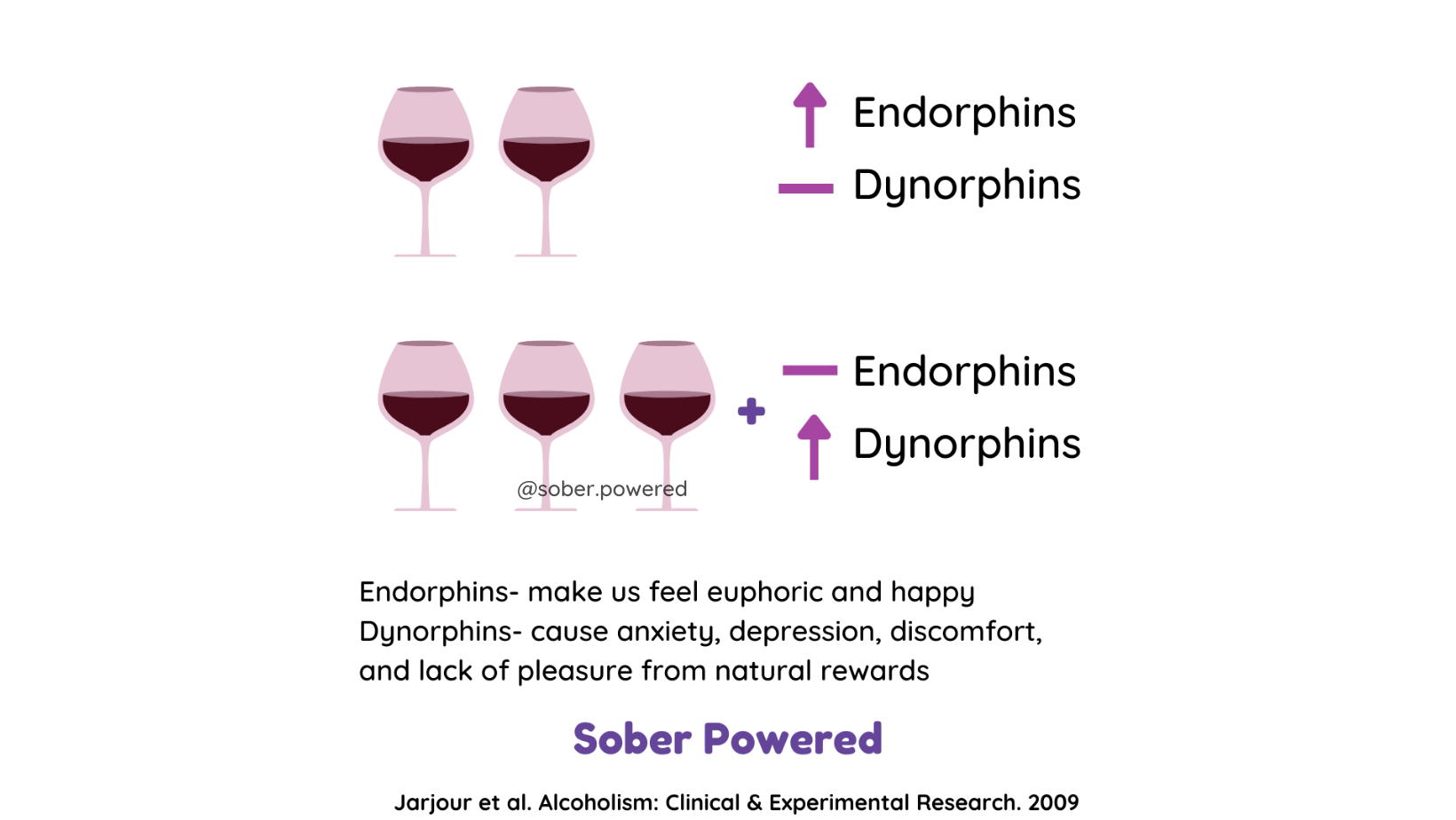Why You Feel Anxious, Depressed, and Empty After Drinking Alcohol
Listen to the full episode in your podcasting app: Apple Spotify Other apps
A 2009 study published in Alcoholism: Clinical and Experimental Research found that with low to moderate doses of alcohol, endorphin release was increased in the brain and there was no real effect on dynorphin levels. However, higher doses of alcohol, which would be more than 2 standard drinks worth, did not increase endorphin release in the brain and at the same increased dynorphin release.
Dynorphins are called the “feel bad” chemicals
They cause depression, anxiety and discomfort. This study is really interesting because we keep on drinking to keep chasing the buzz and the amazing “benefits” we get from alcohol, but we are never able to maintain those feelings. Just like with everything else we've talked about, the brain is always trying to stay in balance. When you have unnaturally high levels of endorphins from alcohol and you keep trying to blast yourself, there's going to be a consequence.
When we try to stop drinking, the effects are the opposite of the ones we get while we're drinking and this is because the brain is desperately trying to stay in balance. The problem is, we drink to relieve anxiety, depression, unhappiness, and stress, but then all of these feelings come back more intensely in withdrawal.
Learn more about this process in episode 108
We drink expecting all of these good things to keep coming our way, but there’s a limit to the amount of alcohol that causes pleasure and good feelings. If you continue to drink after that point, you only get the bad stuff. In this episode you’ll learn why this drink limit exists and what’s going on in the brain to cause the discomfort, anxiety, depression and an emptiness that we experience after the alcohol wears off, and how opioid antagonists like Naloxone and Naltrexone work in the brain. Gill explains dynorphin, which is also known as the “feel bad” chemical, and how alcohol changes the dynorphin system in the brain to make us feel so miserable that we drink again to get relief.
What to listen to next:
E11: Why Alcohol Feels Good (Endorphins and Opioid Receptors)
E62: Dopamine Deep Dive
E67: How Alcohol Impacts Cortisol and Causes Cravings
E106: What Happens in the Brain When We Are Overwhelmed (The Amygdala Hijack)
E22: Why You Think Alcohol Helps Your Anxiety
E64: Anxiety and Alcohol (Part 2)
Sources
Samuel Jarjour et al. Effect of Acute Ethanol Administration on the Release of Opioid Peptides from the Midbrain Including the Ventral Tegmental Area. Alcoholism: Clinical & Experimental Research, June 2009
Kissler, J. The one-two punch of alcoholism: role of central amygdala dynorphins/kappa-opioid receptors. Biological Psychiatry. 75:10. 2014.
Crowley, A. at al. Dynorphin controls the gain of an amygdalar anxiety circuit. Cell Reports. (14)12:2774-2783. 2016
Hang, A., Wang, Yj., He, L. et al. The role of the dynorphin/κ opioid receptor system in anxiety. Acta Pharmacol Sin 36, 783–790 (2015).
Villines, Z. What is an opioid agonist? WebMD Connect to Care.
Naltrexone-Bupropion Tablet, Extended Release. WebMD.
Cite this episode
Tietz, G. Episode 108: Why You Feel Anxious, Depressed, and Empty After Drinking Alcohol. Sober Powered. 2022.
